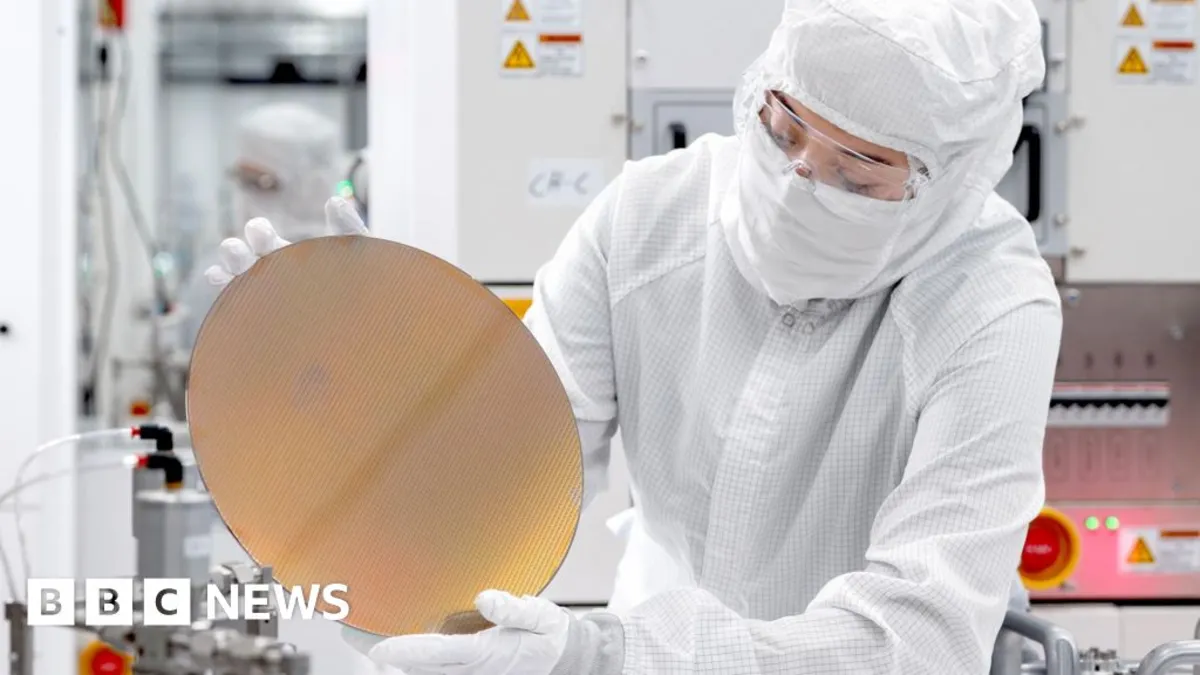
Texas Instruments (TI), a leading computer chip manufacturer, has unveiled plans to invest over $60 billion (approximately £44.74 billion) in the United States. This significant investment comes amid increasing pressure from former President Donald Trump for major technology firms to boost domestic manufacturing. TI aims to build or expand seven chip-making facilities across three key locations in Texas and Utah, which is expected to create around 60,000 jobs for American workers.
The Dallas-based firm has labeled this initiative as the largest investment in foundational semiconductor manufacturing in U.S. history. While Texas Instruments did not provide a specific timeline for the rollout of this investment, the announcement aligns with a broader trend among semiconductor manufacturers to ramp up their U.S. operations. For instance, Micron recently revealed plans to increase its spending in the U.S. to a staggering $200 billion.
U.S. Secretary of Commerce Howard Lutnick expressed optimism regarding TI's investment, stating, “Our partnership with TI will support U.S. chip manufacturing for decades to come.” This collaboration is a testament to the Biden administration's ongoing efforts to strengthen semiconductor production in America, particularly following the finalization of a $1.6 billion subsidy for TI in December, aimed at supporting the construction of three new facilities.
Despite the positive outlook, some analysts suggest that TI's multi-billion dollar commitment may also serve as a strategic move to appease Trump, who has threatened to cancel the $52.7 billion CHIPS and Science Act, which was enacted by his predecessor, Joe Biden. Furthermore, Trump has hinted at the possibility of imposing new tariffs on semiconductor imports, adding another layer of complexity to the industry landscape.
Unlike companies that focus on advanced artificial intelligence chips, such as Nvidia, Texas Instruments specializes in producing foundational chips. These essential components are utilized in a wide array of devices, from smartphones to automobiles. With a global presence encompassing 15 sites, including facilities in both the U.S. and Asia, TI serves a diverse clientele, including major players like Apple, SpaceX, and Ford.
As Texas Instruments continues to navigate the competitive landscape, particularly with the rise of Chinese manufacturers in the lower-end chip sector, this substantial investment underscores the company's commitment to maintaining its leadership position in semiconductor manufacturing. The long-term implications of this investment are expected to reverberate throughout the industry, potentially setting a precedent for future initiatives aimed at bolstering U.S. manufacturing capabilities.